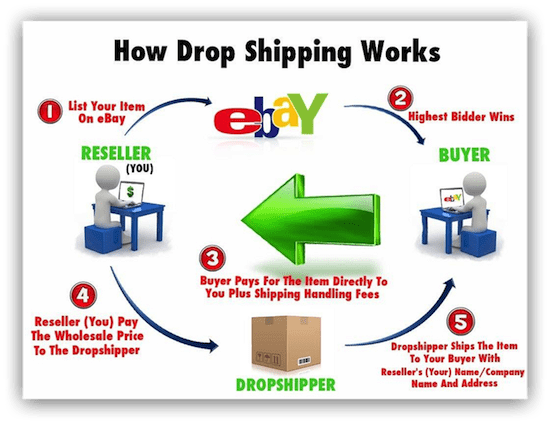No products in the cart.
how to
What is Drop Shipping ?
Drop shipping is a supply chain management method in which the retailer does not keep goods in stock but instead transfers customer orders and shipment details to either the manufacturer, another retailer, or a wholesaler, who then ships the goods directly to the customer. As in retail businesses, the majority of retailers make their profit on the difference between the wholesale and retail price, but some retailers earn an agreed percentage of the sales in commission, paid by the wholesaler to the retailer.
To enable customers to review items similar to those they can purchase, a drop shipping retailer might keep “display items” on display in a physical “brick and mortar” store, or provide a product catalog as either hard copy or online, or even some combination of all these methods (“bricks and clicks”).
Retailers that drop ship merchandise from wholesalers can take measures to hide this fact or keep the wholesale source from becoming widely known. This can be achieved by “blind shipping” (shipping merchandise without a return address), or “private label shipping” (having merchandise shipped from the wholesaler with a return address customized to the retailer). The wholesaler might include a customized packing slip, including details such as the retailer’s company name, logo, and contact information.
Drop shipping can occur when a small retailer (that typically sells in small quantities to the general public) receives a single large order for a product. Rather than route the shipment through the retail store, the retailer might arrange for the goods to be shipped directly to the customer. Drop shipping is also very common with big ticket items like steel buildings, where the retailer will take a deposit and have the steel shipped directly to the buyer’s building site from the supplier’s manufacturing facility.
Many sellers, including those on online auction sites, also drop ship. Often, a seller will list an item as new and ship the item directly from the retailer or wholesaler to the customer or highest bidder. The seller profits from the difference between the sales of the product or winning bid and the wholesale price, less any selling and merchant fees, or shipping fees. On eBay there is not a clear rule about drop shipping. According to their policy, this practice should be avoided, as sellers should always own the products before publishing them. This is to prevent bad buyer experiences and to guarantee safe transactions. However, it seems that eBay is tolerating drop shipping as long as the seller can guarantee good service.
One effect of drop shipping is that customers who receive a drop-shipped package will realize that they overpaid for the item on eBay, return the item to the manufacturer, then reorder the identical item directly from the manufacturer. The cost of processing the return and the loss of the unsellable returned product can result in significant losses to the manufacturer.
An emerging trend in the drop ship business is private label drop shipping, in which a manufacturer produces a custom item for a retailer and drop ships it. The range of private label drop shipped items available includes, for example, simple keepsakes, apparel with custom logos, pictures, and customized formulations for vitamins and nutritional supplements
Major drop shipping suppliers and fulfillment services are primarily based in the USA. Since 2006 many drop ship companies have emerged in China, many of which offer wholesale and drop shipping services to both companies and individuals. This is largely due to the increasing ease of e-procurement and the growing part that the internet is playing in e-commerce. Drop ship suppliers based in China have increasingly been able to compete with same-country distributors because of improved logistics for small packets and the easing of trade barriers.
Benefits
Two significant benefits of drop shipping are a positive cash-flow cycle and the elimination of upfront inventory. A positive cash flow cycle occurs because the seller is paid when the purchase is made. The seller usually pays the wholesaler using a credit card or credit terms. Therefore, there is a period of time in which the seller has the customer’s money, but has not yet paid the wholesaler.
Drop shipment can also be an advantage in some transactions since it (can) obscure the actual shipper from the final receiver, thus preserving a middleman’s role by preventing direct communication/awareness between the original seller and final buyer, without requiring a middleman to bear the costs/delay in physically taking in the goods, repackaging, relabeling, etc.


